Om Saroug
Saroug, Sarough, Saruk, Sarouk South of Malayer and Wiss you can find the town of Saroug. Here, carpets are knotted in workshops and as part of the domestic industry. The wool is often beautiful and glossy, and the knotting is compact and regular. The carpets are among the most durable...Read more
Showing 1–30 of 31 results
-
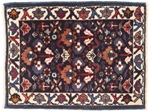
Sarugh Tæppe
CW1515979875cm x 58cmProduct from remote storageOnline
Priskr. 3.120kr. 2.340,- (-25%) -
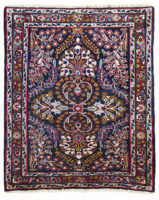
Saroug Tæppe
tk26580cm x 64cmkr. 4.900,- -
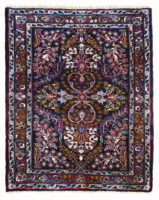
Saroug Tæppe
tk26679cm x 65cmkr. 4.900,- -
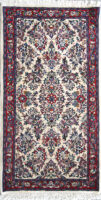
Saroug Tæppe
7753127cm x 67cmTilbudSale! kr. 2.340,- (-40%) -

Sarugh Tæppe
CW17260068123cm x 76cmProduct from remote storageOnline
Priskr. 24.000kr. 18.000,- (-25%) -

Sarugh Tæppe
CW63260069143cm x 72cmProduct from remote storageOnline
Priskr. 24.000kr. 18.000,- (-25%) -

Sarugh Tæppe
CW59960079153cm x 76cmProduct from remote storageOnline
Priskr. 24.000kr. 18.000,- (-25%) -

Sarugh Tæppe
CW92360070147cm x 80cmProduct from remote storageOnline
Priskr. 36.000kr. 27.000,- (-25%) -

Sarugh Tæppe
CW45560071145cm x 85cmProduct from remote storageOnline
Priskr. 24.000kr. 18.000,- (-25%) -
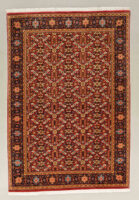
Saroug Tæppe
9838152cm x 103cmkr. 19.900,- -

Sarugh Tæppe
CW19559463154cm x 103cmProduct from remote storageOnline
Priskr. 10.800kr. 8.100,- (-25%) -
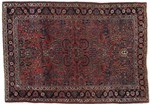
Sarugh Tæppe
CW54790101150cm x 108cmProduct from remote storageOnline
Priskr. 6.000kr. 4.500,- (-25%) -
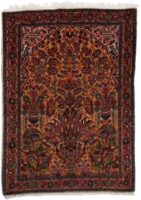
Sarugh Tæppe
CW94037958153cm x 110cmProduct from remote storageOnline
Priskr. 36.000kr. 27.000,- (-25%) -
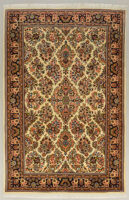
Saroug Tæppe
9837160cm x 108cmkr. 12.000,- -

Sarugh Tæppe
CW79860072195cm x 125cmProduct from remote storageOnline
Priskr. 75.000kr. 56.250,- (-25%) -

Sarugh Tæppe
CW48959868204cm x 130cmProduct from remote storageOnline
Priskr. 14.400kr. 10.800,- (-25%) -

Sarugh Tæppe
CW54790147200cm x 135cmProduct from remote storageOnline
Priskr. 15.600kr. 11.700,- (-25%) -

Sarugh Tæppe
CW42790086273cm x 178cmProduct from remote storageOnline
Priskr. 57.600kr. 43.200,- (-25%) -
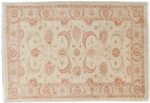
Sarugh Tæppe
CW30943870267cm x 185cmProduct from remote storageOnline
Priskr. 17.784kr. 13.338,- (-25%) -
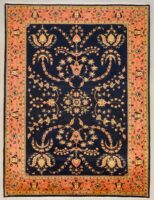
Saroug Tæppe
tg05445278cm x 210cmkr. 24.000,- -
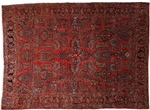
Sarugh Tæppe
CW64059910369cm x 268cmProduct from remote storageOnline
Priskr. 60.000kr. 45.000,- (-25%) -
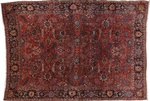
Sarugh Tæppe
CW677568530377cm x 267cmProduct from remote storageOnline
Priskr. 192.000kr. 144.000,- (-25%) -
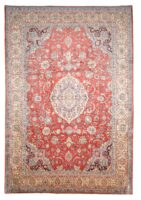
Sarogh Tæppe
MM78828705397cm x 268cmProduct from remote storageOnline
Priskr. 43.200kr. 32.400,- (-25%) -
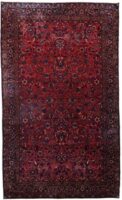
Sarugh Tæppe
CW76690249446cm x 262cmProduct from remote storageOnline
Priskr. 67.200kr. 50.400,- (-25%) -
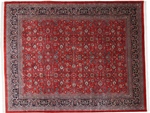
Sarugh Tæppe
CW47760053390cm x 310cmProduct from remote storageOnline
Priskr. 150.000kr. 112.500,- (-25%) -
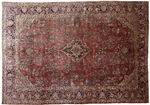
Sarugh Tæppe
CW15190181437cm x 306cmProduct from remote storageOnline
Priskr. 96.000kr. 72.000,- (-25%) -
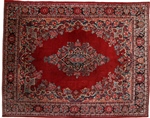
Sarugh Tæppe
CW79459601430cm x 340cmProduct from remote storageOnline
Priskr. 28.800kr. 21.600,- (-25%) -
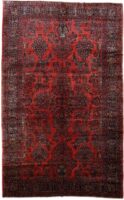
Sarugh Tæppe
CW79690260497cm x 309cmProduct from remote storageOnline
Priskr. 216.000kr. 162.000,- (-25%) -
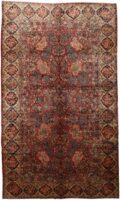
Sarugh Tæppe
CW47990261517cm x 307cmProduct from remote storageOnline
Priskr. 144.000kr. 108.000,- (-25%) -

Sarugh Tæppe
CW50390062557cm x 352cmProduct from remote storageOnline
Priskr. 240.000kr. 180.000,- (-25%)
Showing 1–30 of 31 results
Mere om Saroug
Saroug, Sarough, Saruk, Sarouk
South of Malayer and Wiss you can find the town of Saroug. Here, carpets are knotted in workshops and as part of the domestic industry. The wool is often beautiful and glossy, and the knotting is compact and regular. The carpets are among the most durable in Iran, but here too you can find carpets with dyes and wool qualities that do not even come close to the standards of old. The patterns often consist of an oblong medallion with flower motifs or a Herati pattern that fills a pure blue, red or beige ground colour. You can also find other patterns without a medallion and with regular flower motifs. The colours are beautifully matched, with warm, subdued nuances, but you can also find wonderful compositions of strong reds and blues. The warp and weft are cotton and the Ghiodres knot is mostly used, though you can sometimes find carpets with the Senneh knot. The knot density fluctuates greatly and can be 14,000-55,000 per ft2.
Read more about Malayer, Wiss, and the Arak area:
Malayer:
The town of Malayer is located in the eastern part of the Hamadan area, close to the border to Arak. In terms of quality and pattern, malayer carpets are comparable to carpets from Saroug and Djozan. They can also slightly resemble carpets from Ferahan as they are knotted with a different technique and seem a bit thinner. However, do not mistake the quality, which can be amazing particularly in the older carpets. Here too you will find subdued red and blue colours as well as indigo/dark blue. Some carpets from Malayer also come with a pearl chain pattern on the main border. The knot density is usually 14,000-28,000 per ft2.
Wiss, Viss:
The town of Wiss is located west of Arak. Here you can find some rather crude but sturdy and wear resistant carpets. The patterns are large and geometrical, with contrasting colours often consisting of yellow-red, red and blue. The carpets are knotted with Ghiordes knots. The warp and weft are made of cotton. The knot density is 7,000-17,000 per ft2.
The Markazi-province
The Arak area
The Arak area near the town of Arak is a rich agricultural zone where the population speaks Farsi (Persian). Arak was founded in the 19th century under the name Sultanabad. The carpet producing zones include Saroug, Ghiassabad, Djozan, Malayer, Saroug-Mir, Mahal, Wiss, Bordjalo and Lilihan. For over 200 years carpets have been knotted in the Arak areas. It was the merchants from Tabriz who, in the mid-1800s, noticed the skilled Arak knotters. Thanks to the wool, colours and harmoniously designed patterns, the carpets quickly became a popular export product to the West. The wool quality in Arak is generally quite good. They remained popular carpets, and natural dyes were predominantly used. Today, good wool and natural dyes are no longer a given, but there are still carpet makers around who struggle to honour the good old carpet traditions.
Source:
You are reading an extract from the book ‘Oriental Carpets, Knottet with Love’ by Martin Munkholm.
This extensive book about all that is carpets can be borrowed in Danish libraries or be bought following this link: https://belle-rugs.dk/vare/bog-aegte-taepper-knyttet-med-kaerlighed/
The book is published by Muusmann Forlag.
For more info: http://muusmann-forlag.dk/
See video about Saroug rugs here: https://www.youtube.com/embed/YiYe9KNNpBg
You can find our selection of Saroug rugs below
